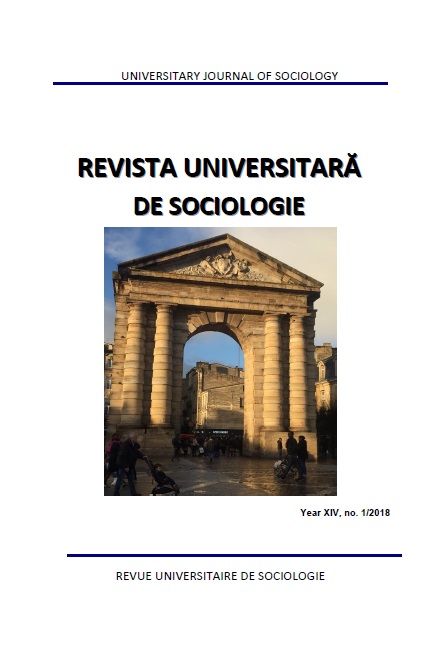EXPLANATORY PARADIGMS OF THE RELATIONSHIP BETWEEN LANGUAGE, CULTURE, AND REPORTING TO REALITY
EXPLANATORY PARADIGMS OF THE RELATIONSHIP BETWEEN LANGUAGE, CULTURE, AND REPORTING TO REALITY
Author(s): Vlad Ovidiu CioacăSubject(s): Anthropology, Philosophy, Social Sciences, Language and Literature Studies, Semiotics / Semiology, Customs / Folklore, Theoretical Linguistics, Epistemology, Semiology, Social Philosophy, Communication studies, Sociology, Comparative Linguistics, Cultural Anthropology / Ethnology, Culture and social structure , Theory of Communication, Social psychology and group interaction, Sociobiology, Sociology of Culture, Philology, Social Norms / Social Control, Globalization, Rhetoric
Published by: Ediktura Beladi
Keywords: dialect; language; culture; evolution; interactionism; constructivism; communication; Sapir-Whorf hypothesis;
Summary/Abstract: This article seeks to outline the polemics on the relationship between language and dialect and between language and social inter-action, and to present, in an analytical, synthetic and comprehensive manner, some theoretical models that provide explanatory patterns regarding the way in which language, as the basis of culture, is influencing how we relate to objective reality. First we will make a conceptual distinction on the relationship between dialect and language, we will review the philosophical premises of the issues addressed, after which the emphasis will move on the analysis of the language from four distinct paradigmatic positions: evolutionary, relativist, interactionist and constructivist.
Journal: Revista Universitară de Sociologie
- Issue Year: XIV/2018
- Issue No: 1
- Page Range: 82-93
- Page Count: 12
- Language: English

